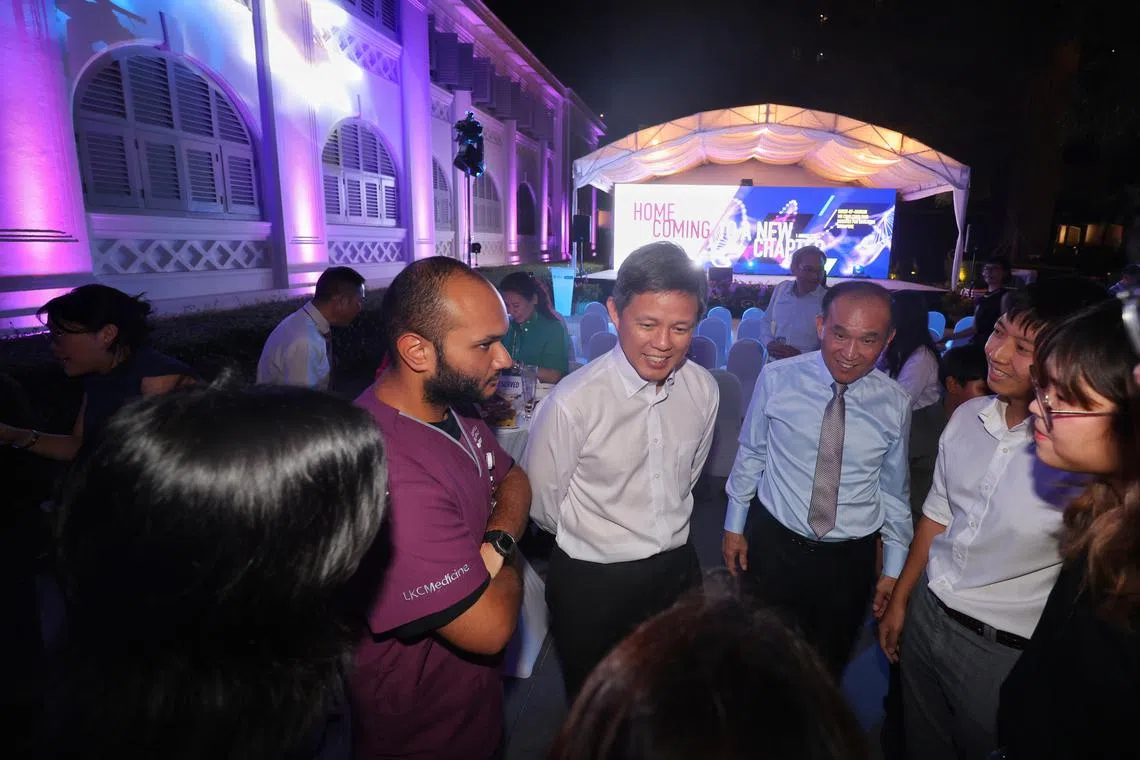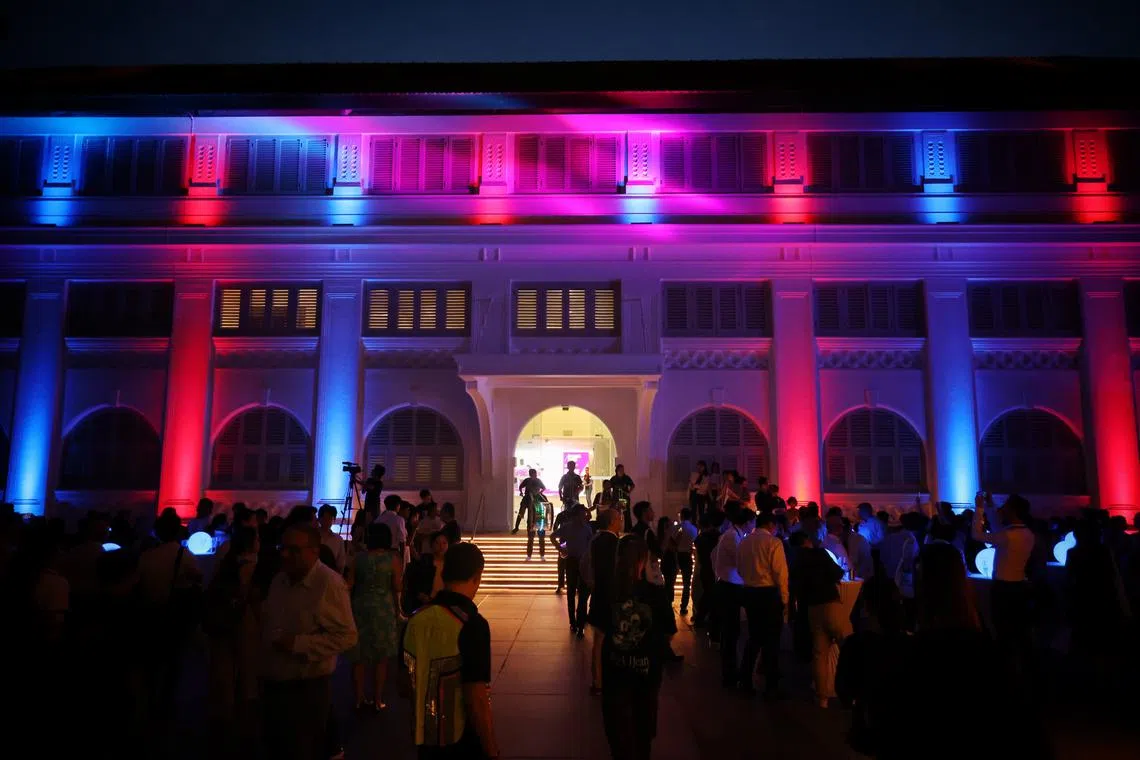NTU medical school welcomes first cohort under new degree programme
Sign up now: Get ST's newsletters delivered to your inbox

Education Minister Chan Chun Sing and Mr Lim Chuan Poh, chairman of LKCMedicine’s governing board (on Mr Chan's left), speaking to LKCMedicine students at a homecoming event on Aug 1.
ST PHOTO: JASON QUAH
SINGAPORE – As the healthcare landscape becomes more complex, it is key to embrace technology and integrate data with medical practice, said Education Minister Chan Chun Sing.
“This is an ongoing challenge that we must keep working on, combining the best of medicine in its traditional form with the best and latest frontier technologies that we can harness in service of medicine,” he said.
Mr Chan was speaking as guest of honour at a homecoming event of the Lee Kong Chian School of Medicine (LKCMedicine) at Nanyang Technological University (NTU) on Aug 1.
He addressed about 300 LKCMedicine faculty, alumni and students as well as industry partners at the event, which welcomed the first batch of students who will receive medical degrees solely from NTU, as well as a fresh curriculum under its new degree programme.
It was reported in 2022 that students enrolling in LKCMedicine from 2024 will graduate with NTU-conferred medical degrees,
Mr Lim Chuan Poh, chairman of LKCMedicine’s governing board, who also spoke at the event, said that when the 2023 batch graduates in 2028, it will mark the end of the two schools’ 18-year partnership.
Both the joint NTU-Imperial degree programme and the new NTU medicine degree programme will run side by side for the next four years, he added.
The new Bachelor of Medicine and Bachelor of Surgery degree programme will have three new aspects – digital health technologies, medical humanities, and professional growth and development, said Professor Joseph Sung, dean of LKCMedicine.
Students will be taught how to use data science, artificial intelligence and machine learning to help them make quicker diagnosis and suggest better treatment, and be equipped with skills to better understand patients, he added.
“We don’t want our students or future doctors to be just technocrats and only know about computer science,” he said. “We want them to be human doctors.”
Prof Sung added that under the new curriculum, students will also be trained to become more resilient doctors who can overcome new challenges in the healthcare landscape in the future.
But it will also retain the best of the current degree programme, which includes aspects like team-based learning, an interdisciplinary approach to medicine, and early patient interaction, he said.
When asked how he feels about the changes in curriculum, Year 5 medicine student Lim Rong said they were not unexpected.
“Times are changing and the demands of healthcare are also changing, and what is needed as a clinician will change over time,” the 25-year-old said. “I think these are changes that anyone in the medical field is anticipating.”

The LKCMedicine headquarters being lit up during the homecoming event on Aug 1.
ST PHOTO: JASON QUAH
Mr Lim, who will be graduating in 2025, said it feels like the end of a chapter and the start of a new one, now that the school will be conferring its own degrees.
“But I think a lot of us never thought of NTU and Imperial as two entities, and saw LKCMedicine as one entity and our home,” he said. “In that sense, nothing has really changed for us.”
LKCMedicine was set up jointly with Imperial College in 2010 to meet Singapore’s growing healthcare needs, and welcomed its first batch of students in 2013, who graduated in 2018.
Both schools will continue their partnership beyond the medical school, including establishing a research hub that focuses on topics like artificial intelligence and robotics for healthcare, as well as infectious diseases.
Imperial College, together with NTU, also announced in January 2024 a new $20 million medical research programme
As the school transitions to a new chapter, Mr Chan said it is important for graduates to adopt a spirit of lifelong inquiry, remain committed to maintaining patients’ trust in healthcare professionals, and uphold medical ethics.
“If we remember that the heart of the practice of medicine is always about the care for the patient, then the ethics must not change,” he said.
Prof Sung said there is still a long way for LKCMedicine to go and more work to be done before it can become a top medical school, adding that more close collaboration with other schools is a priority.
Through these collaborations, he hopes to give his students better learning opportunities.
“Within the next five to 10 years, I hope our students will become good doctors who move and shake the healthcare system, who lead their various specialities,” he said.



